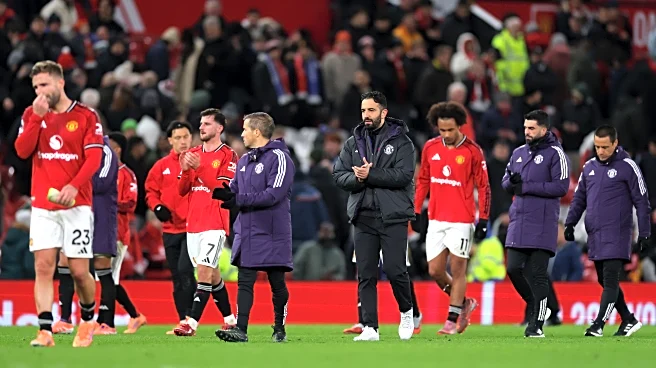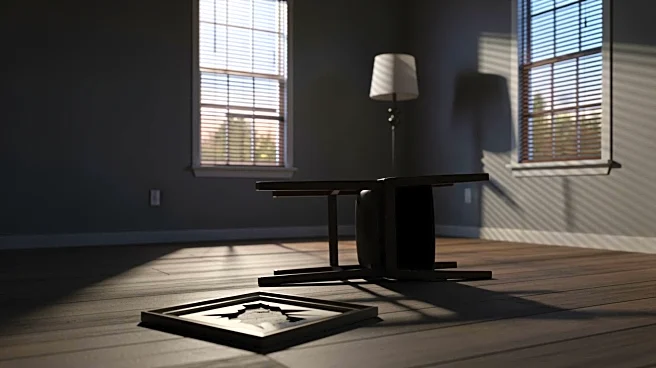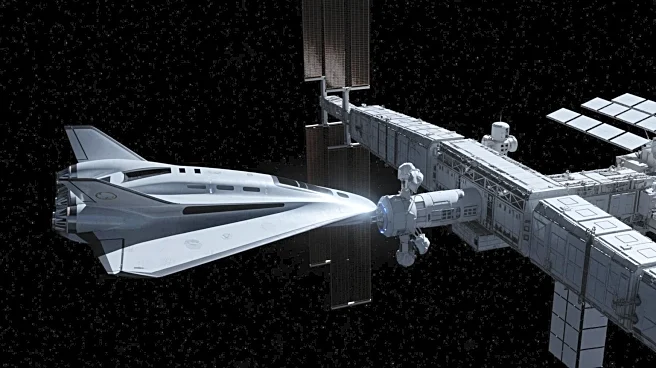I don’t even know where to start with this one. They say apathy is the worst emotion. When you stop being mad and just stop caring altogether. I think in this case, acceptance might be worse?
I watched Monday’s 1-0 loss against Everton standing next to the co-host of a fairly prominent Manchester United podcast. For most of the match, the two of us just stood there completely dumbfounded. At a loss for words.
There was just a quiet acceptance that it wasn’t going to happen tonight. Thirty minutes into
the match there was an acceptance that United’s tactical plan was not working against Everton’s tactical plan. Around 70 minutes it was clear that Ruben Amorim wasn’t going to change anything. There was an acceptance that it meant United were going to lose. Things weren’t magically going to change.
There was an air of optimism heading into the match. Manchester City and Liverpool both lost at the weekend and a win by at least two goals would see United vault into the top four.
Why shouldn’t we have hope that United could win by a two-goal margin? United had won their last four home games and were unbeaten in their last five overall. On top of that Ruben Amorim won this fixture 4-0 last season. Most importantly though, David Moyes was the man in the other dugout.
Moyes had never won a Premier League fixture at Old Trafford as the visiting manager. Entering the match, he sported a record of zero wins, four draws, and 13 losses, with two of those draws coming over 20 years ago. It never mattered how poor United were playing or how well Moyes side were doing. When David Moyes came to Old Trafford his sides tended to do, well, nothing.
The vibes shifted when team news was released. Once again Ruben Amorim was being passive, opting to start five defenders against an Everton side that doesn’t score a lot of goals. Yes there were injuries up front that required a re-jigging of the squad but there were still options that avoided five defenders.
Starting XI be damned. We persist, this is still David Moyes at Old Trafford. We’d figure it out.
Then the match started and something weird happened. For the first time in I don’t know how long, David Moyes’ team were… actually playing football at Old Trafford. They were going at United, and they’d done their homework – looking to get the ball quickly into those channels directly behind the wing-backs. This would either to isolate United’s wide center backs or force the midfielders to come over and cover that space – leaving the middle of the pitch wide open.

Meanwhile, United opened the match playing what looked like a game of “the Everton half is lava.” It almost looked like United were actively trying to keep the ball in their own half of the pitch.

And when it was there they better get it out as quick as possible.

Despite United’s passiveness on the ball, what was incredible was how easily a David Moyes side was finding massive amounts of space in the middle of the park.
This comes from one little shimmy from Idrissa Gana Gueye to bypass a pressing Bruno and suddenly the entire pitch is open in front of him.

There are mitigating factors here. Bruno pushes up to press his man and gets beat. That leaves United short in midfield. Initially, Leny Yoro steps into midfield to keep some structure while Matthijs de Ligt stays on Everton striker Thierno Barry.

Then De Ligt inexplicably just backs off Barry. This creates a situation where no one is covering the ball carrier, Barry, or James Garner.

Once Gueye makes the pass to an open Barry, no one covers him as he runs past Casemiro. With Shaw – and De Ligt – both going to cover Garner, Gueye is easily able to find Iliman Ndiaye coming from out wide. United have men back here, but still make it look so easy for Everton.

United were able to stop that attack, get all their men back, and regain their shape but guess what happens just 20 seconds later? Everton is still able to get their central midfielder into pockets of space

…and play little passes, keeping the ball away from United.

It was not looking good for the home team. This was supposed to be the David Moyes freebie here. Three points and a spot in the top four!
Luckily for United, the football gods intervened. 13 minutes into the match, Idrissa Gueye gets mad at Michael Keane for allowing United to get an ultimately harmless shot, and ultimately ends up getting sent off for slapping his teammate in the face.
This was the break United needed. It was a rough 13 minutes but Everton would be playing with 10 for over an hour. They’d be less adventurous going forward and eventually would tire enough for United to get a breakthrough. No visiting team had ever gotten a red card at Old Trafford and won the match.
Except that’s not what happened. Despite there being 75 more minutes left to play the red card didn’t change the match at all. United went from doing a whole lot of nothing with the ball in their own half, to doing a whole lot of nothing with the ball but now outside Everton’s box. Everton went from trying to get forward to mostly not trying, but on the occasions they did try to get forward, those pockets were still so easily found.
This is Everton playing out the back with 10 men! Everton, a David Moyes side, playing out from the back! Down a man.

They do it so easily and again are able to find massive pockets of space in the middle of the field with relative ease.

Nothing comes from this attack, but a minute later, Everton are right back in United’s end of the pitch, this time via a long ball that Leny Yoro heads away, but somehow, there’s no United player in sight.

Again Everton don’t push the advantage. They play slow, keep the ball under control, and United are able to get all their players back and set up their lines. Somehow that still leaves James Garner completely unmarked.

Everton would pass the ball around the left-hand side a bit, and a few seconds later you get the same situation. Garner – playing for a team down to 10 men – receives the ball with no one near him. He’s got time to look around for a pass. He’s got a pass to an attacking midfielder in Kiernan Dewsbury-Hall, who also has found an empty pocket of space.

When Dewsbury-Hall receives the ball United are playing catch up. Bruno has to try close him down from behind, Yoro has to run at him. It makes it all too easy for him to shrug them both off.

The lead allowed Everton to drop even deeper. They didn’t need to worry about pushing forward but even the second half they would sporadically do so. And when they did, it didn’t take much for them to find players wide open in pockets of space.

One result should not make or break a coach’s career. A 1-0 loss at home where you get football’d can happen. But the way United lost this match really seemed like the final nail in the coffin to the idea that Ruben Amorim is the answer for this club long-term.
He doesn’t need to be sacked in the morning. The composition of the squad is so poor and with so many holes the ceiling for where this team can finish is low no matter who is in charge. Any manager who walked in would take one look at the options in central midfield and immediately know they’re not going to have short term success.
But once the squad improves if you leave Amorim in charge it feels like this is still what you’re going to get. This game looked like the quintessential Amorim game. Like many other teams, Everton know how to play against Amorim’s setup.
As soon as United won possession, the wing-backs were bombing forward. Joshua Zirkzee was dropping deep with Bruno, making runs behind him. All that looks good in practice but if you lose the ball you’re suddenly outnumbered in midfield and exposed out wide. Having better wing backs doesn’t help if Bryan Mbeumo loses the ball and now the wing-backs are out of position.
The more United lost the ball in the middle of the park the more they started forcing passes to avoid ground duels and turning it over anyway. It was a vicious cycle.
Despite going up a man after 15 minutes, Amorim pushed on with five defenders against a team with 10 men. United struggled to create anything. At halftime Mason Mount was brought on in place of one of the defenders, which made things better, but United still lacked any sharpness in attack. Like so many Amorim match’s, United’s best chance of the match came in the final minutes, and like they typically do, that chance fell to defender.
For most of the 75 minutes United played up a man, it looked like they had no idea how to play up a man. In the first half they hardly made Everton work, failing to make them work hard that could have tired them out for the second half. Kobbie Mainoo was brought on with a half hour to go but all he could offer was lateral passing.
Both Mainoo and Joshua Zirkzee were given chances to show why they should be playing more, but both really only showed why their minutes have been so limited this season.
United were without Benjamin Sesko and Mathues Cunha the latter being one of five players whom if they aren’t available everything falls apart and it showed. While their absences made life harder for United, what really stood out was Amorim’s inability to do anything about it.
Within a half hour it was clear that United’s tactical plan was not working against Everton’s tactical plan. If you wanted a breakthrough, you were going to have to do something different. That change never came. Amorim shifted to four defenders but maintained that 3-4-2-1 shape. He made two more like for like subs but never altered the shape or the approach. It was the quote “plan B is just do plan A better” come to life.
There is no world where Plan A will always be the best plan. Managers who achieve longevity are the ones who show they can adapt and evolve with the times. Managers like Arsene Wenger or Jose Mourinho faded away at the top level because they could no longer adapt their ideas to modern times. Even Pep Guardiola is finding this out – his football style is no longer en vogue. He’s currently trying to change how his team plays and dealing with the growing pains as he tries to figure it out.
This game was the microcosm of Ruben Amorim. A steadfast refusal to make necessary changes. It comes on the heels of several games where United’s halftime changes – if you can call them that – have left a lot to be desired. It’s starting to paint a picture of a manager who simply cannot adapt to the variables happening within each match.
Standing at the bar Monday night, I was alarmed at how I wasn’t alarmed by what I was seeing. There was an acceptance. This is Ruben Amorim’s United, and more often than not, this is what it’s going to look like.















